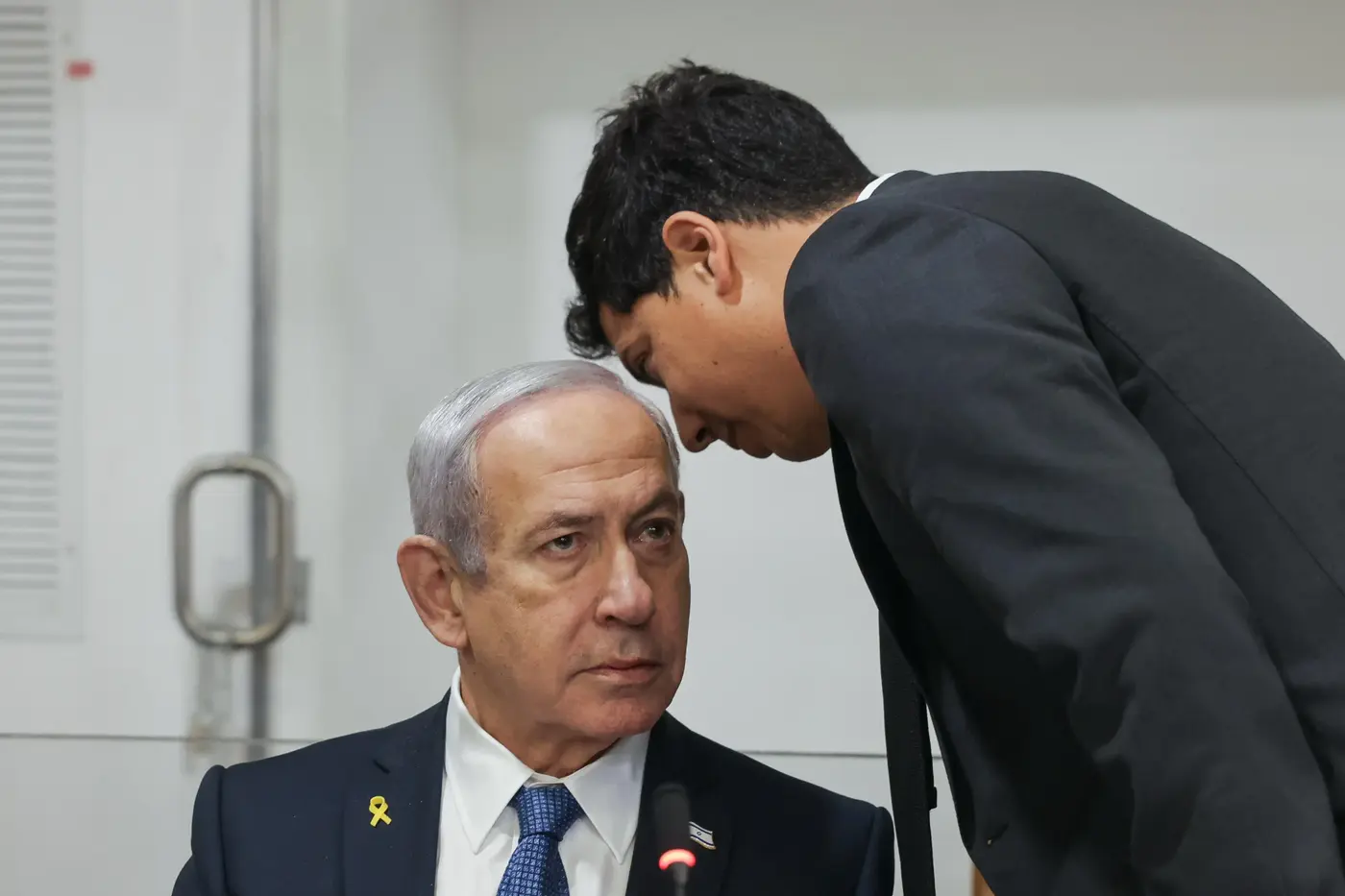A tumultuous day unfolded in Israeli politics following Prime Minister Benjamin Netanyahu's surprise appointment of former Navy chief Eli Sharvit as the next head of the Shin Bet (Israel Security Agency), only for the decision to be engulfed in immediate controversy and internal backlash, according to a report and analysis by Ben Caspit in Walla News. The chaotic events suggest Sharvit's tenure, if it proceeds, could be historically short, overshadowed by internal power struggles within the Prime Minister's office and the looming Qatargate investigation.
The day began with an official announcement naming Sharvit, a decorated officer, as the successor to current Shin Bet Director Ronen Bar. Initially, pro-Netanyahu commentators lauded the choice. However, the mood soured rapidly as reports surfaced confirming Sharvit had previously attended anti-government protests on Kaplan Street, had written critically about former US President Trump's climate policies, and had supported the maritime gas deal with Lebanon negotiated by the previous government under Yair Lapid.
This information ignited fierce opposition from political commentators and reportedly from within the Prime Minister's inner circle, explicitly citing Sara Netanyahu. Walla News suggests the Prime Minister's wife was not consulted on the appointment, echoing a similar scenario with the recent appointment of IDF Chief of Staff Herzi Halevi (though the article mentions Zamir, likely referring to Halevi's process). This perceived slight, coupled with Sharvit's background, reportedly led to intense conflict within the Prime Minister's residence, with briefings against Sharvit commencing almost immediately after his appointment was announced.
Ben Caspit's analysis posits a deeper strategic motive behind Netanyahu's initially baffling choice. He suggests Netanyahu was aware of Sharvit's Kaplan participation but proceeded anyway, allegedly driven by a need to replace Ronen Bar amidst the sensitive "Qatargate" investigation. This probe examines alleged illicit Qatari influence and funding potentially involving figures close to Netanyahu or the Prime Minister himself. Caspit theorizes that Netanyahu might have hoped Sharvit, indebted for the surprise promotion and perhaps less likely to provoke the anti-government protest movement, would be amenable to slowing or deflecting the investigation away from the premier's office.
The political drama intensified dramatically with the simultaneous arrests of two key Netanyahu aides, Yonatan Urich, and Eli Feldstein, on suspicion of serious offenses, including contact with a foreign agent and bribery related to the Qatargate affair. This development forced Netanyahu's lawyer, Amit Haddad, to abruptly leave the Prime Minister's ongoing corruption trial testimony to handle the legal affairs of the arrested aides he also represents – highlighting the complex web of legal entanglements surrounding the Prime Minister.
Caspit argues that the core issue is not Sharvit's suitability but the attempt to remove Ronen Bar. At the same time, the Shin Bet investigates matters potentially implicating the Prime Minister's office, calling it a blatant conflict of interest. The rapid sequence of events – appointment, backlash, arrests, and internal feuding, described by Caspit as a blend of "The Godfather" and political satire – underscores the volatile state of Israeli governance under Netanyahu, with significant decisions seemingly driven by personal political survival and internal power dynamics, particularly the alleged influence struggle between Sara Netanyahu and figures like Chief of Staff Tzachi Braverman and commentator Yaakov Bardugo, who reportedly pushed the Sharvit nomination. As the situation remains fluid, the future leadership of the Shin Bet hangs precariously in the balance.
